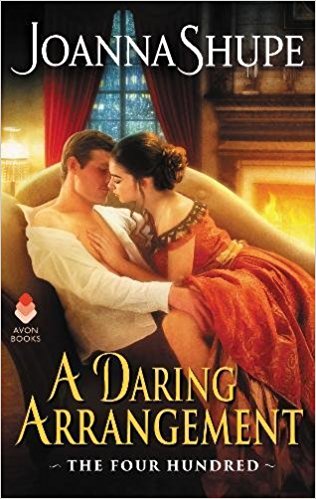 A Daring Arrangement (The Four Hundred, #1) by Joanna Shupe
A Daring Arrangement (The Four Hundred, #1) by Joanna Shupe Formats available: paperback, ebook, audiobook
Series: Four Hundred #1
Pages: 384
Published by Avon on October 31st 2017
Purchasing Info: Author's Website, Publisher's Website, Amazon, Barnes & Noble, Kobo, Bookshop.org
Goodreads
Set in New York City’s Gilded Age, Joanna Shupe’s Avon debut introduces an English beauty with a wicked scheme to win the man she loves—and the American scoundrel who ruins her best laid plans…
Lady Honora Parker must get engaged as soon as possible, and only a particular type of man will do. Nora seeks a mate so abhorrent, so completely unacceptable, that her father will reject the match—leaving her free to marry the artist she desires. Who then is the most appalling man in Manhattan? The wealthy, devilishly handsome financier, Julius Hatcher, of course….
Julius is intrigued by Nora’s ruse and decides to play along. But to Nora’s horror, Julius transforms himself into the perfect fiancé, charming the very people she hoped he would offend. It seems Julius has a secret plan all his own—one that will solve a dark mystery from his past, and perhaps turn him into the kind of man Nora could truly love.
My Review:
There’s a reason that the “fake engagement” is such a well-beloved (and well-used) trope, and books like A Daring Arrangement are that reason. The story sparkles with wit and sizzles with scandalous heat from the moment that the hero and heroine first strike sparks from each other – when he’s three – or possibly four or five sheets to the wind – celebrating his birthday on horseback inside one of New York City’s best restaurants. She stands on a chair to make sure they are eye-to-eye, and neither they, nor the reader, ever look back.
Lady Nora Parker wants to start a scandal, so that her father-the-Earl will whisk her home to England, and back to the arms of the very unsuitable artist she has fallen in love with. Julius Hatcher wants an entree into the upper echelons of so-called polite society, so that he can discover the identities of the men who ruined his father and drove the man to suicide.
Neither of them expects to fall anywhere near love. Nora is in love with somebody else, and Julius has vowed never to marry. The manner of his father’s death left him with the indelible impression that love and family only leads to obligations and dependencies that can drag a man even further down than he has already fallen.
So Julius is determined not to fall. But he still needs revenge on the men who broke his father and got away unscathed. He sees Nora as a means to that end, just as Nora sees Julius as the means to her end.
But Julius is unwilling to cause the scandal that Nora desperately wants. Now that he’s found his way into the upper crust, he needs to stay there until he’s found what he wants.
Neither of them expects that what they will want most is each other. But the longer their fake engagement goes on, the more they discover that they belong together. Just as someone else tries to tear them apart.
Escape Rating B+: For the most part, this story is an absolute lark. With a raven casting a bit of a shadow near the end. Let me explain.
The best part of this story is the relationship between Nora and Julius. They are both smart people who like breaking the rules. They are absolutely perfect for each other. In a world where most men see Nora as a breakable ornament, and most women see Julius as a handsome devil with an open (and bulging) wallet, in each other they find an equal. They draw sparks from each other both sexually and intellectually, and most importantly, they challenge each other. And they keep up with each other.
 And in the best “fake engagement” tradition, they are the last people to realize that their relationship is real, no matter how it got its start.
And in the best “fake engagement” tradition, they are the last people to realize that their relationship is real, no matter how it got its start.
However, I did find it just a bit obvious that Nora’s lover back in England was bound to show up in New York and do something to break up her relationship with Julius long before he finally appeared. On the one hand, his attempt at breaking them up was even further over the top than I expected, and on the other hand, while I figured out that he was behind some of the nastiness behind the scenes, he went way further, and in a different direction, than I expected.
Nora is a character that I really grew to love over the course of the story. She starts out seeming just a bit selfish, but also very brave. And in the end, it’s her bravery that shines through.
And the bubble and sparkle of A Daring Arrangement has me looking forward with delighted anticipation to the next book in this series, A Scandalous Deal, coming next spring.
~~~~~~ TOURWIDE GIVEAWAY ~~~~~~
Giveaway Link: https://goo.gl/qPk2oY
GIVEAWAY TERMS & CONDITIONS: Giveaway open to US shipping addresses only. One winner will receive a paperback copy of A DARING ARRANGEMENT by Joanna Shupe. This giveaway is administered by Pure Textuality PR on behalf of Avon Romance. Giveaway ends 11/14/2017 @ 1159pm EST. Avon Romance will send the winning copy out to the winner directly. Limit one entry per reader and mailing address. Duplicates will be deleted.



 Wilde in Love (Wildes of Lindow Castle, #1) by
Wilde in Love (Wildes of Lindow Castle, #1) by 
 Highland Dragon Rebel (Dawn of the Highland Dragon, #2) by
Highland Dragon Rebel (Dawn of the Highland Dragon, #2) by  Escape Rating A-: Highland Dragon Rebel reminded me of just how much I loved the author’s first
Escape Rating A-: Highland Dragon Rebel reminded me of just how much I loved the author’s first  There are older and more fell things in Moiread and Madoc’s world than dragons, and there are dragons older and more powerful than the MacAlasdairs. It would not be a true quest, after all, if there wasn’t a real possibility that our hero and heroine had bitten off just a bit more than they can chew – even with dragon-sized jaws.
There are older and more fell things in Moiread and Madoc’s world than dragons, and there are dragons older and more powerful than the MacAlasdairs. It would not be a true quest, after all, if there wasn’t a real possibility that our hero and heroine had bitten off just a bit more than they can chew – even with dragon-sized jaws.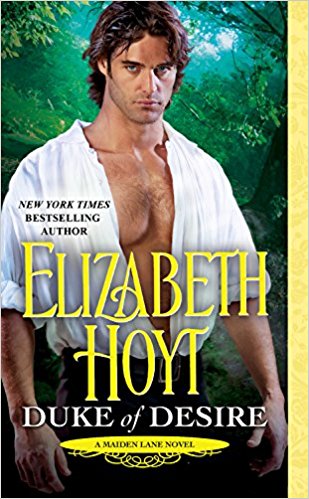 Duke of Desire (Maiden Lane, #12) by
Duke of Desire (Maiden Lane, #12) by  But when the Lords kidnap Lady Iris Jordan in the mistaken belief that she is the new wife of their enemy the Duke of Kyle. (His story is told in last year’s
But when the Lords kidnap Lady Iris Jordan in the mistaken belief that she is the new wife of their enemy the Duke of Kyle. (His story is told in last year’s 
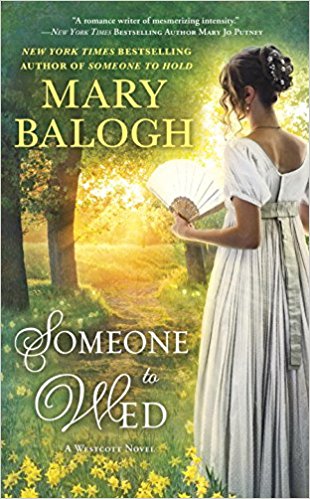 Someone to Wed (Westcott #3) by
Someone to Wed (Westcott #3) by  Someone to Wed is the third book in Balogh’s historical romance
Someone to Wed is the third book in Balogh’s historical romance 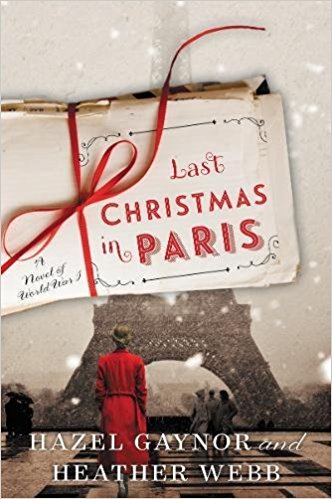 Last Christmas in Paris: A Novel of World War I by
Last Christmas in Paris: A Novel of World War I by  As much as I loved this book, I kept having the niggling feeling that I had read some of it before. It certainly reminds me
As much as I loved this book, I kept having the niggling feeling that I had read some of it before. It certainly reminds me 
 Highland Dragon Warrior (Dawn of the Highland Warrior, #1) by
Highland Dragon Warrior (Dawn of the Highland Warrior, #1) by 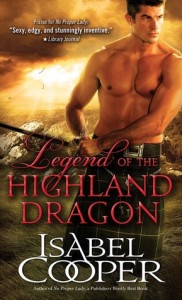 I picked this up thinking that it was a followup to the author’s earlier
I picked this up thinking that it was a followup to the author’s earlier  And I liked that the difficulties between them were not swept under the carpet in a wave of romantic fluff. Or even obscured by a cloud of lust. There are real issues, and those have to be dealt with in order to arrive at a happy ever after. They successfully compromise, but not in a way where she gives up everything for him. They meet in a negotiated middle, and it works.
And I liked that the difficulties between them were not swept under the carpet in a wave of romantic fluff. Or even obscured by a cloud of lust. There are real issues, and those have to be dealt with in order to arrive at a happy ever after. They successfully compromise, but not in a way where she gives up everything for him. They meet in a negotiated middle, and it works. A Most Unlikely Duke (Diamonds in the Rough, #1) by
A Most Unlikely Duke (Diamonds in the Rough, #1) by  There were any number of times during the course of this story where it kept toeing up to some of the expected traps, but didn’t fall in. There were a few too many occasions where it looked like Gabriella was going to cave in and do what her parents wanted. And when she dithered about it, the story dragged a bit. Her forced engagement to the pompous ass was one of the very low points. While her desire to get out of it without risking further social ruin felt real, it kept things on tenterhooks a bit longer than I would have liked.
There were any number of times during the course of this story where it kept toeing up to some of the expected traps, but didn’t fall in. There were a few too many occasions where it looked like Gabriella was going to cave in and do what her parents wanted. And when she dithered about it, the story dragged a bit. Her forced engagement to the pompous ass was one of the very low points. While her desire to get out of it without risking further social ruin felt real, it kept things on tenterhooks a bit longer than I would have liked.

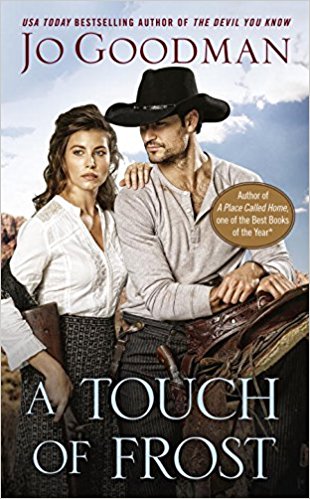 A Touch of Frost by
A Touch of Frost by  I like Jo Goodman’s historical western romances quite a bit. If you haven’t indulged,
I like Jo Goodman’s historical western romances quite a bit. If you haven’t indulged, 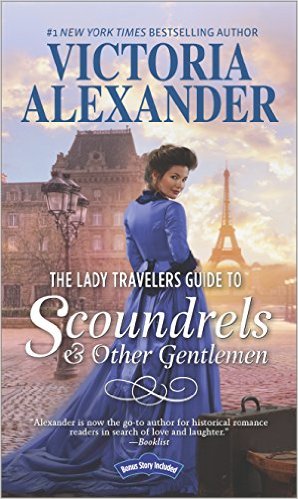 The Lady Travelers Guide to Scoundrels & Other Gentlemen (The Lady Travelers Guide, #1) by
The Lady Travelers Guide to Scoundrels & Other Gentlemen (The Lady Travelers Guide, #1) by